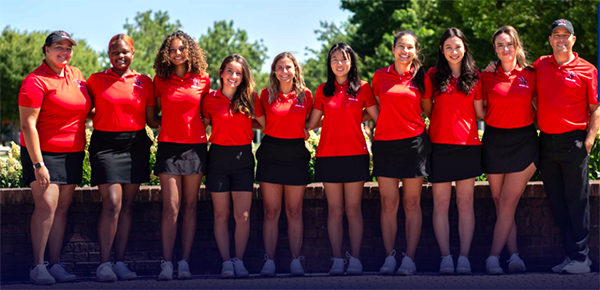Historically Black Colleges and Universities, commonly referred to as HBCUs, first emerged in the 19th century as an avenue for black students to pursue an education that had been denied to them by historically white institutions of higher learning. Their initial mission was to provide training and education for teachers and tradesmen. More than 150 years later, HBCUs offer full curricula – liberal arts, science, technology, engineering and mathematics (STEM) degrees.
HBCUs also offer lower tuition, increased minority access to STEM-related careers, and a thriving, supportive community and cultural experience for their students. They have long fielded impressive and accomplished football, basketball and baseball programs with a track record of placing athletes in the NFL, NBA and MLB. Super Bowl champions like Walter Payton, Deacon Jones, Shannon Sharpe and Michael Strahan all went to HCBUs. NFL and MLB star Deion Sanders now shines a bright light on HBCU football as the head coach of Jackson State. They’ve even made it into bestselling fiction. John Grisham’s novel Sooley was about a basketball star who plays at an HBCU.
But these athletic accomplishments, real and fictionalized, have not yet extended to collegiate golf, particularly on the women’s side.
Currently, only fourteen of the 107 HBCUs even have women’s golf programs.
The PGA Tour has recognized this long-standing disparity and has taken steps to try to address it. Last September, the PGA Tour selected Delaware State as one of four HBCUs to receive a $100,000 grant for its men and women’s golf teams. This was an important step in the tour’s mission to grow the game among minorities.
Delaware State head women’s golf coach Rick McCall plans to use the grant for scholarships and to recruit new talent. Part of the grant will also be used to introduce golf to elementary schools by having his players actively promote the game. McCall’s players will not only teach golf skills but will focus on the game’s values. Coach McCall wants his players to serve as mentors and, more importantly, as role models for the youth in the Delaware State community.
Let the season begin! #DSUgolf #hornets pic.twitter.com/LcNjf4ijRJ
— DSU Women’s Golf (@DSUWgolf) September 6, 2014
Delaware State launched its golf program only nine years ago. But the evolution has been clear. McCall quickly grasped the type of player he sought to fill his roster. Talent is an obvious component. But he also searches for well-rounded students who wish to have a full college experience.
He still has trouble capturing the attention of a large pool of girls looking to play collegiately.
The well-rounded college career pitch attracted Delaware State sophomore Amber Pennington. Introduced to golf by her father at the age of four, Pennington played her first tournament at age nine. Her father, who taught himself the game, passed his passion for golf on to his daughter.
When being recruited by several colleges during her sophomore and junior years of high school, Pennington knew that she wanted to attend an HBCU. Coming from a small, rural, and predominantly Caucasian town in upstate New York, she recalls feeling out of place. She envisioned attending a college that would allow her to celebrate and share in her African American heritage with other student-athletes while playing the game she loves. Pennington added that a lot of players choose HBCUs for similar reasons–-not merely for the college experience but also to experience a college with a more familiar culture.
Read the entire article by Jessica Thronton at LPGA.com

